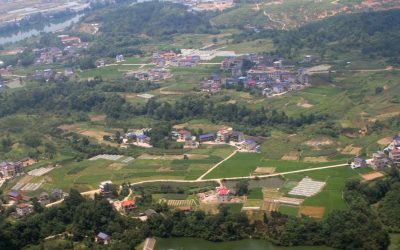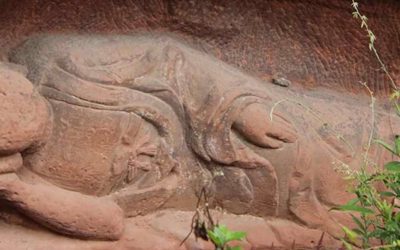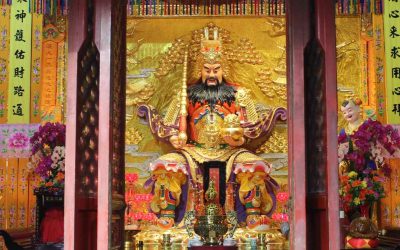Chinese Herbal Medicine Shop in Weishan, Yunnan
China still maintains a strong tradition of using natural medicines, specifically herbs with medicinal properties that have been used for centuries. In addition to being present in the composition of many modern medications, some herbalists continue their traditional trade. Even in large cities, it is not uncommon to occasionally find herbalists selling fifteen or twenty products in their small stall or shop, each stored in a plastic bag. Usually, these products do not have labels, meaning that only an expert knows exactly what each medicine is.
Herbal medicine shop
In this shop, located in the ancient city of Weishan in Yunnan province, we find what could be described as the pinnacle of Chinese herbal medicine. Within this traditional house on the main street of the old town, we discover a unique display of medicinal herbs. On the left, some medicines are neatly arranged in white plastic bags, this time identified with small labels. Higher up, in a small nod to modern civilization, others are carefully placed in plastic bottles.
A unique shop in China
However, what makes this shop stand out from all the other similar stores and stalls across China is the sheer volume of herbs stored in the white and green sacks seen on the right side of the image. It is well known that each medicinal herb must be harvested at a specific time of the year and that many of these herbs are needed in large quantities to be therapeutically effective. The foresight of this traditional pharmacist creates a truly unique scene in the ancient city of Weishan.
Wonderful Weishan Old City
Weishan is one of the oldest cities in Yunnan province. Officially designated as an autonomous district for the Yi and Muslim communities within the Bai Autonomous Prefecture of Dali, Weishan boasts significant historical, artistic, and cultural attractions. Among them, the Ancient City, with thousands of well-preserved buildings, and Weibaoshan Mountain, located 10 km from the city, stand out as the most important Taoist mountain in Yunnan.
This is why we include this city in almost all of our itineraries in Yunnan.
Last posts
Chronicle of a Blood Merchant by Yu Hua
Chronicle of a Blood Merchant by Yu Hua One of the best Chinese novels of the 20th century. Without the apparent search for big ideas, it seduces the reader by its simplicity, and ends up entangling him in its plot. Chronicle of a blood seller, in reality, it is only...
The Grand Canal and the Great Wall
The Grand Canal and the Great Wall In Brief: A brief review showing some of the similarities between the two iconic works of Chinese history and culture, their goals, and their differences. As well as how they both ended up shaping this country. I have always been...
The decapitated Buddhas of the Fahua Temple in Anning
The decapitated Buddhas of the Fahua Temple in Anning In Brief: One of Yunnan's most important cultural heritages destroyed by political fundamentalism, a thought-provoking visit. On the outskirts of Kunming, the capital of Yunnan, near the city of Anning, there are...
Duanwu Festival at a Taoist temple
Duanwu Festival at a Taoist temple Last Saturday I received news that during the Duanwu festival there would be a small ceremony at the Zhenqing Taoist temple. According to the information received throughout the day, there would be different cultural activities,...
The Canon of the Yellow Emperor
The Canon of the Yellow Emperor In Brief: The last great work of Chinese philosophy discovered so far, deserves to be known by all those interested in this country. Almost 50 years ago, in 1973, an important quantity of artistic objects was discovered in an ancient...
Super me – A beautiful adaptation of Lu Dongbin dream
Super me - A beautiful adaptation of Lu Dongbin dream In Brief: An adaptation of the myth of Taoist sage Lu Dong ping to the modern world. It manages to maintain a steady interest and combine Taoist teachings with some moralizing provided by the director. A failed...










